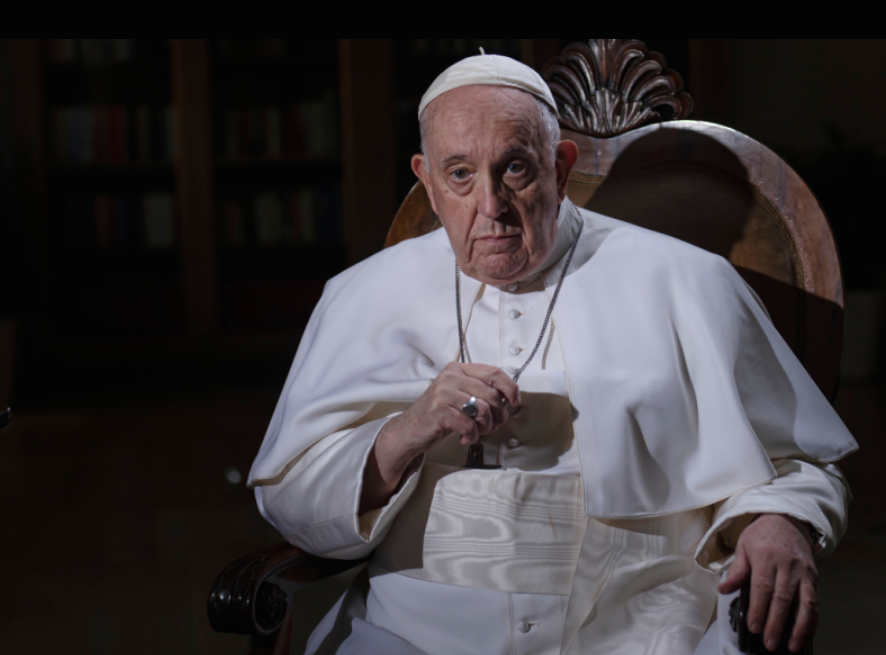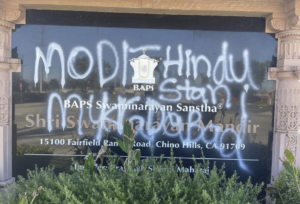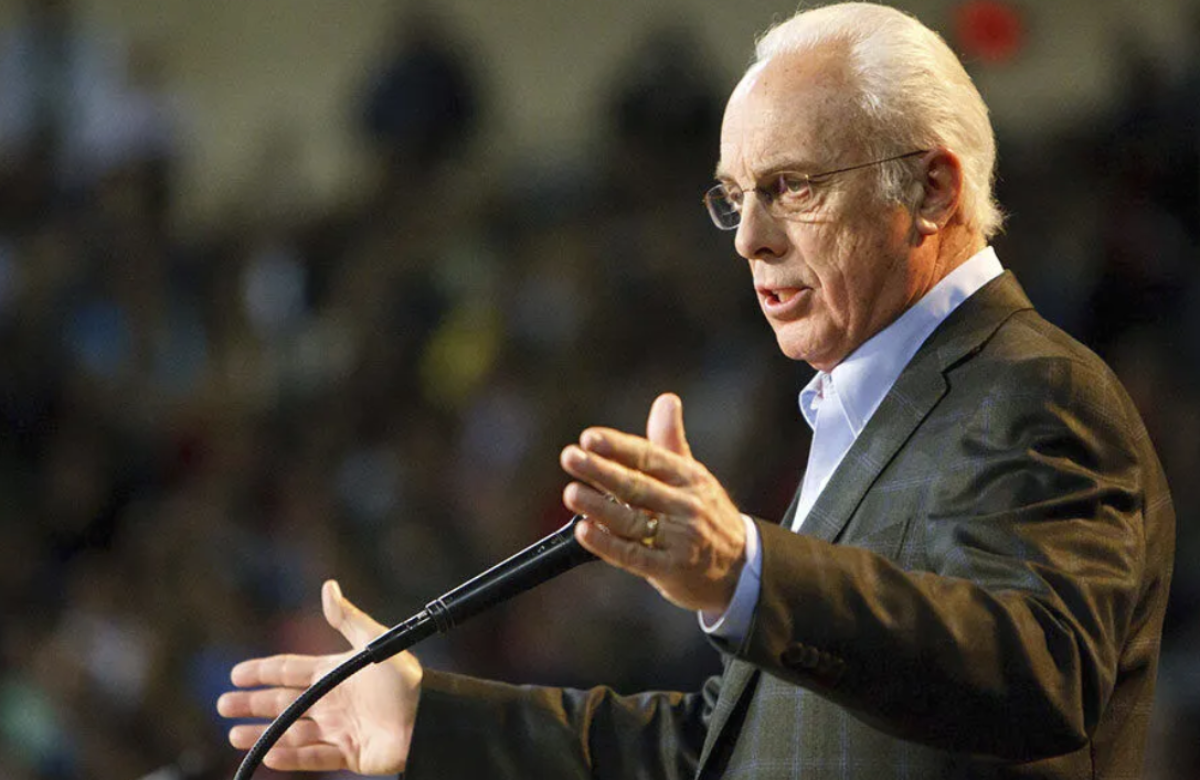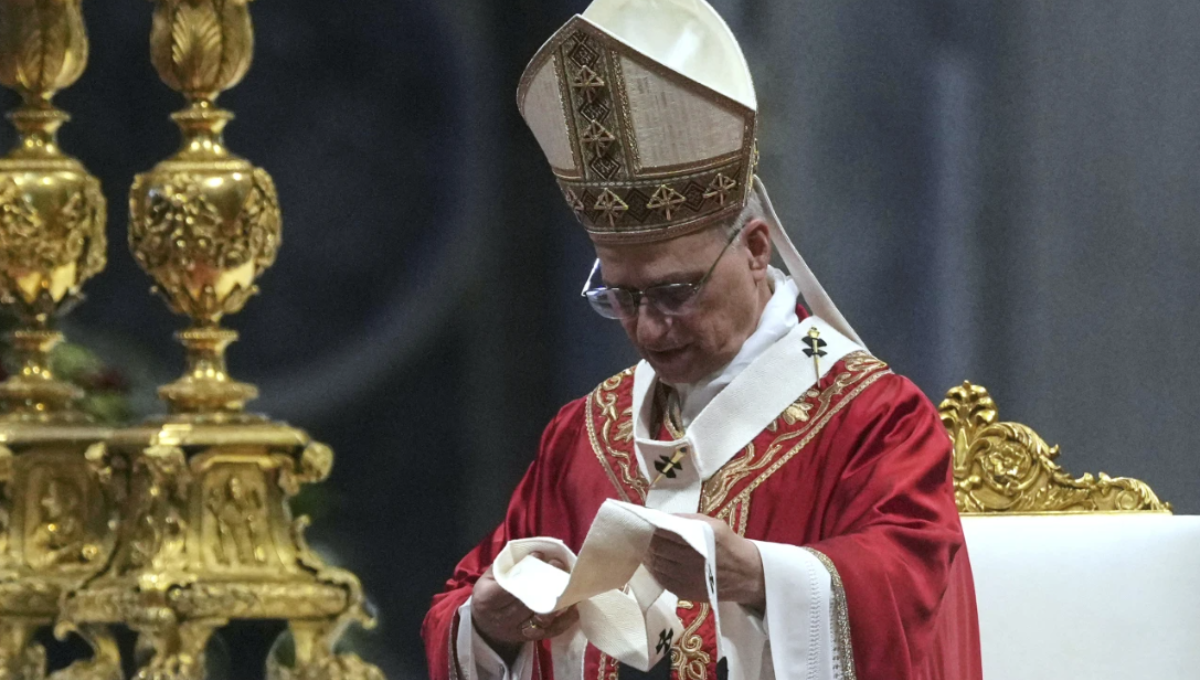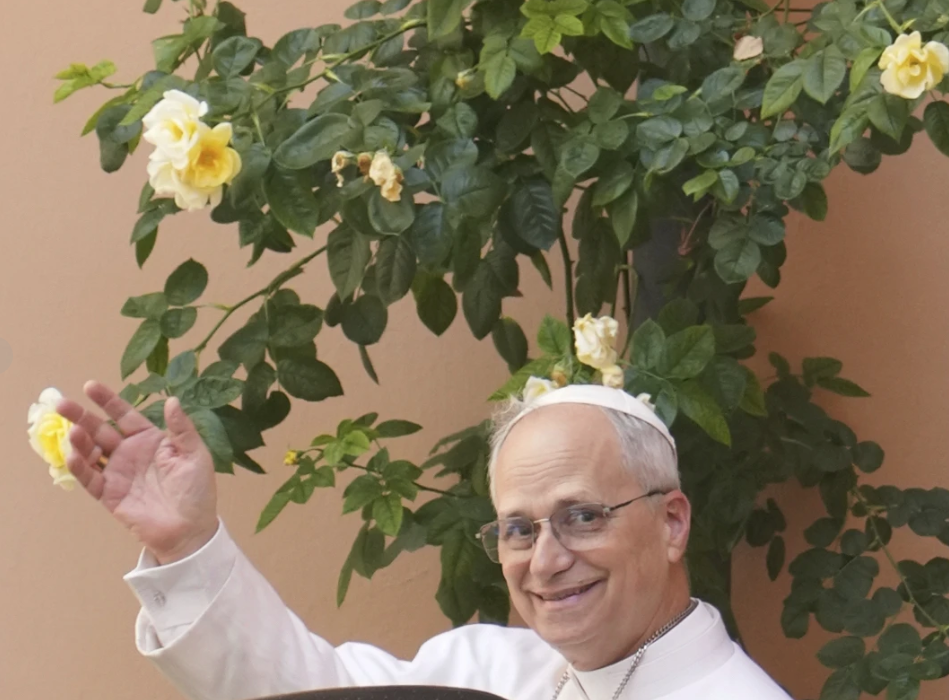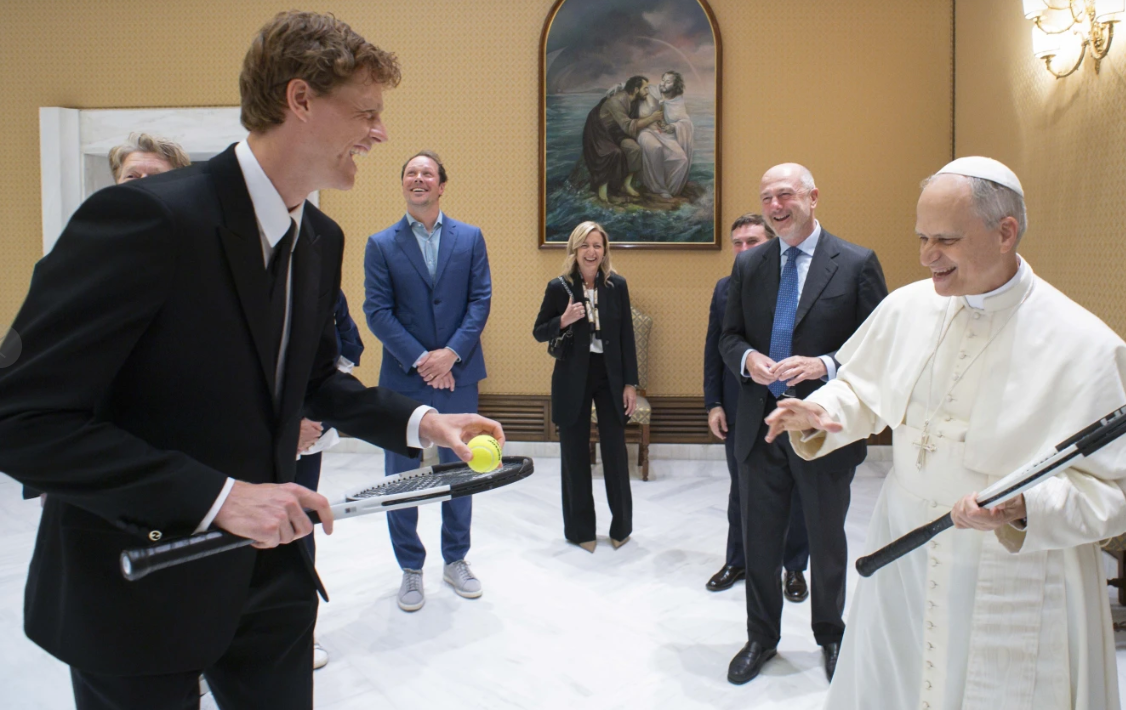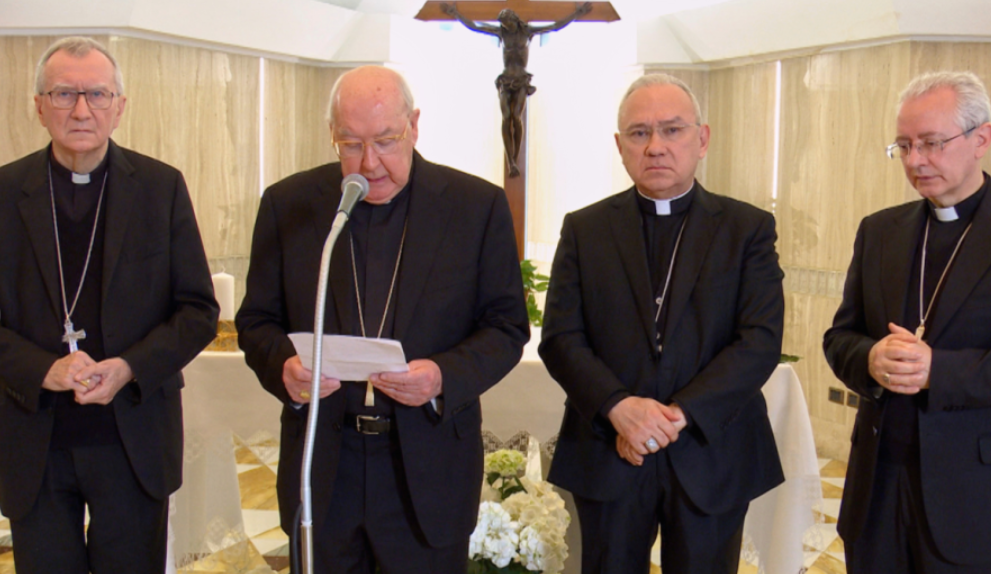Pope Francis, history’s first Latin American pontiff who charmed the world with his humble style and concern for the poor but alienated conservatives with critiques of capitalism and climate change, died Monday. He was 88.
Church bells echoed around the globe—from Argentina to the Philippines and throughout Rome—as the news of Pope Francis’ death spread. Cardinal Kevin Farrell delivered the announcement from the chapel of the Domus Santa Marta, the Vatican residence where Francis lived.
“At 7:35 this morning, the Bishop of Rome, Francis, returned to the home of the Father. His entire life was dedicated to the service of the Lord and of his Church,” Farrell said.
Francis had battled chronic lung issues for most of his life, having part of one lung removed as a young man. On February 14, 2025, he was hospitalized at Gemelli Hospital with a severe respiratory infection that developed into double pneumonia. He remained there for 38 days, marking his longest hospital stay during his 12-year papacy.
He gave his final blessing on Easter Sunday to a crowd in St. Peter’s Square, receiving thunderous applause. Just a day earlier, he had met briefly with U.S. Vice President JD Vance. That blessing, from the same balcony where he first appeared as pope in 2013, was a poignant close to his public ministry.
Reforming the Vatican
Elected to overhaul the Vatican’s administrative and financial systems, Francis did more than expected—he shifted the church’s tone and image without altering its essential doctrines. His now-famous phrase, “Who am I to judge?” when asked about a gay priest, symbolized his openness and pastoral focus.
Francis declared the death penalty unacceptable under any circumstances and called the possession of nuclear weapons immoral. He built bridges internationally, making historic moves like reaching agreements with China, meeting the Russian Orthodox Patriarch, and visiting predominantly Muslim nations like Iraq and the UAE.
While holding to the church’s positions on priestly celibacy and abortion, he gave women greater visibility and influence within the church. He permitted them to vote at synods, serve as lectors and acolytes, and take on leadership roles previously reserved for men.
Sister Nathalie Becquart, a top Vatican official, highlighted his emphasis on cooperation over domination in male-female dynamics within the church. However, groups advocating for women’s ordination were disappointed by his consistent refusal to open the priesthood to women.
The church as refuge
Francis consistently promoted the idea of a church that embraced all people—especially society’s most marginalized. He often chose to meet with refugees, prisoners, and the poor rather than world leaders or corporate figures. “Everyone, everyone, everyone,” he often repeated when describing who belonged in the church.
Cardinal Farrell noted that Francis believed in a welcoming, merciful church. He encouraged compassion among his bishops and frequently raised awareness about environmental degradation and the plight of migrants.
He famously criticized the idea of building walls to keep migrants out, referring specifically to Donald Trump during his 2016 campaign, and reiterated the Christian call to welcome the stranger.
Though hailed by progressives, his inclusivity and challenges to long-standing traditions alarmed many conservative Catholics, who feared he was diluting Catholic identity. Some accused him of heresy, but Francis typically met criticism with silence.
St. Francis of Assisi as a model
Rejecting papal luxury, Francis chose modest living arrangements in the Vatican guesthouse over the Apostolic Palace and favored simple clothing and small vehicles. His leadership style mirrored his namesake, St. Francis of Assisi, who was devoted to the poor, simplicity, and creation.
He was known for his compassion, like when he hugged a man with severe facial deformities, kissed a Holocaust survivor’s tattooed arm, or shared the stage with garbage collectors in Rio de Janeiro.
He made a historic apology to Indigenous peoples for the church’s role in colonial abuses. One transgender woman in Rome, Coqui Vargas, said Francis was among the few who made her community feel seen and supported.
Missteps on sexual abuse scandal
Francis took significant steps to address clergy sex abuse, but not without missteps. Initially slow to act, he formed an advisory commission and later changed canon law to increase transparency and accountability.
His biggest crisis came in 2018 when he dismissed the testimony of abuse victims in Chile, leading to global outcry. Eventually, he admitted his error, met with survivors, and accepted mass resignations from Chile’s bishops.
He later removed Cardinal Theodore McCarrick from the clergy after revelations of abuse, and implemented new protocols for investigating bishops involved in cover-ups.
Juan Carlos Cruz, a survivor once dismissed by Francis but later befriended by him, said the pope had a genuine desire to confront the issue.
A change from Benedict
Francis followed Pope Benedict XVI, who shocked the world by resigning in 2013. Despite their theological differences, Francis kept a close relationship with Benedict, often calling him a wise grandfather figure.
Francis took different approaches on many issues—restricting the old Latin Mass, canonizing Archbishop Óscar Romero (a hero of liberation theology), and addressing internal church scandals with boldness.
These changes sparked friction with traditionalists, especially in the U.S., and became flashpoints for division within the church.
Conservatives oppose Francis
Early signs of conservative pushback emerged when Francis opened discussion on allowing divorced and remarried Catholics to receive communion.
Some outlets and church figures openly criticized him. His approval of blessings for same-sex couples and the Vatican’s controversial deal with China deepened tensions.
U.S. Cardinal Raymond Burke became a vocal critic, especially after Francis removed him from a top Vatican position. In 2023, Francis financially sanctioned Burke, citing his role in fostering division.
Francis urged clergy to be close to the people, and in 2014 gave a blistering address to Vatican officials listing their spiritual failings.
In his efforts to clean up Vatican finances, he initiated investigations, trials, and reforms, including the conviction of Cardinal Angelo Becciu for financial misconduct.
Though his reforms earned praise, they also exposed dysfunction in Vatican governance and prompted questions about the pope’s direct involvement in legal proceedings.
Soccer, opera and prayer
Born December 17, 1936, in Buenos Aires, Jorge Mario Bergoglio was the eldest of five children. He credited his grandmother with teaching him to pray and spent weekends at Mass, listening to opera, and cheering for San Lorenzo soccer club.
He felt called to religious life at 17 during confession and joined the Jesuits in 1958, drawn by their mission-driven and disciplined way of life.
Health problems, including the partial removal of a lung, kept him from becoming a missionary. He was ordained a priest in 1969 and by 1973, led Argentina’s Jesuit order. He later admitted to making mistakes during that time, calling his leadership “authoritarian.”
Life under Argentina’s dictatorship
During Argentina’s brutal military dictatorship, Bergoglio remained silent publicly, drawing criticism for not defending two priests who were abducted. Years later, he revealed efforts he made behind the scenes to save lives, including appealing directly to the dictator.
As pope, stories emerged of how he hid and helped many escape danger during that era.
The path to the papacy
After a stint in Germany for doctoral studies, he returned to Argentina and was marginalized for a time. His fortunes turned in 1992 when Pope John Paul II appointed him as an auxiliary bishop. He became archbishop in 1998 and cardinal in 2001.
During the 2005 conclave, he nearly became pope, finishing second to Benedict XVI. Eight years later, in 2013, he was elected pope on a platform of reform and renewal—becoming a global spiritual leader whose legacy of compassion, controversy, and conviction will be debated for generations.
